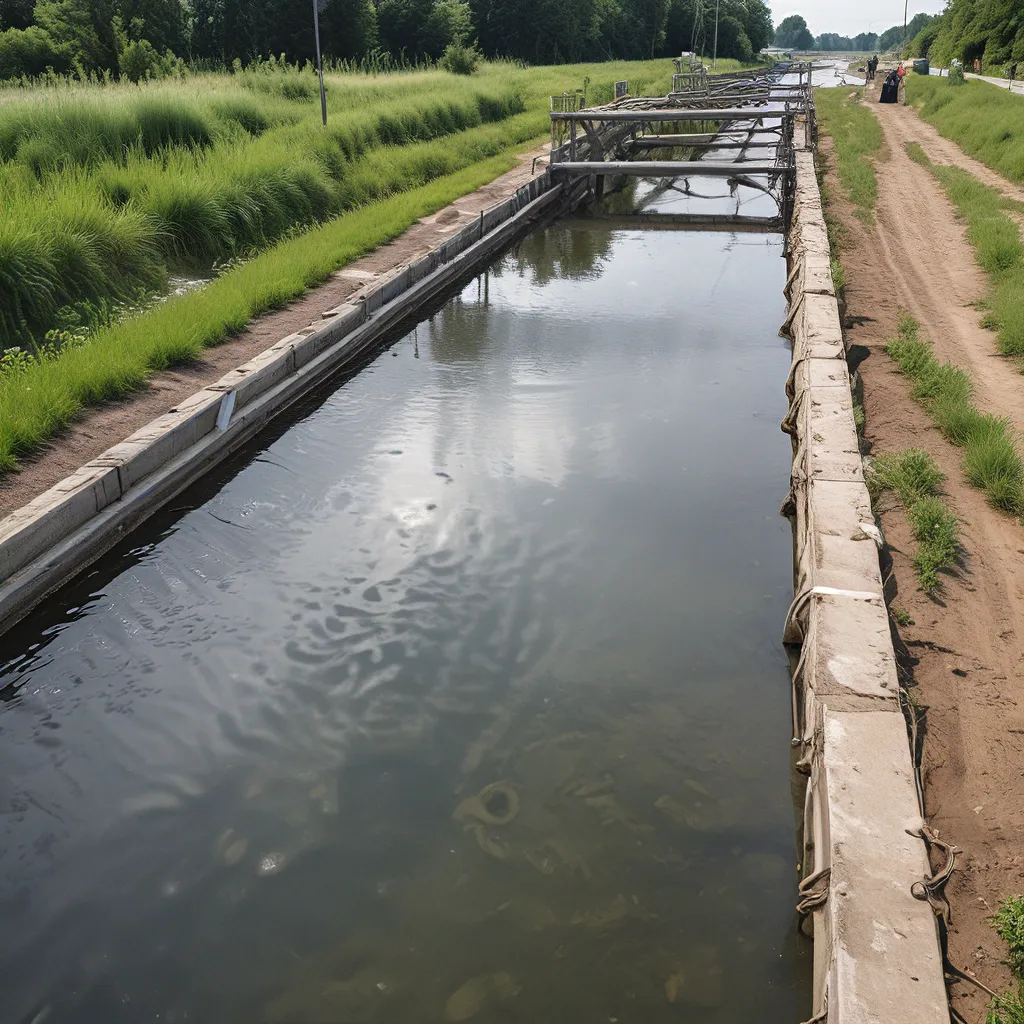
As a wastewater treatment professional, I’ve seen firsthand how the industry has evolved to address the growing challenges we face. One exciting development that has caught my attention is the increasing integration of nature-based solutions into wastewater infrastructure. These innovative approaches not only enhance the functionality of our systems but also offer a host of additional benefits that can truly transform our communities.
Harnessing the Power of Nature
When I first learned about nature-based solutions, I was intrigued by the concept of using natural processes and features to solve human and environmental problems. The idea of incorporating wetlands, green infrastructure, and other natural elements into our wastewater management systems immediately piqued my interest. After all, why not tap into the incredible restorative power of nature to improve the performance and sustainability of our operations?
One of the key advantages of nature-based solutions is their ability to lower the cost of water reuse. Constructed wetlands, for instance, can often remove contaminants from water more efficiently and with less energy and chemical input than traditional treatment technologies. This can make water reuse projects more financially viable, opening up new opportunities for communities to leverage their wastewater resources.
But the benefits of nature-based solutions don’t stop there. These innovative approaches can also gain support for water infrastructure investment by delivering additional value to the community. For example, when the Fairfield-Suisun Sewer District integrated nature-based solutions into their plans, they found that the public was more receptive to their water reuse and infrastructure projects due to the habitat restoration and recreational benefits these solutions provided.
Enhancing Climate Resilience
As the effects of climate change become more pronounced, the importance of building climate-resilient infrastructure has never been greater. Here, nature-based solutions shine by offering a multifaceted approach to adaptation and mitigation.
One remarkable example is the use of horizontal levees – gradually sloped wetlands built on the water-facing side of conventional levees. These nature-based solutions not only help protect against sea level rise and coastal flooding but also provide a habitat for wildlife that may need to retreat as the climate changes. And the best part? They can often be constructed at a lower cost than traditional hard infrastructure like seawalls or rip-rap.
But the integration of nature-based solutions goes beyond just coastal resilience. Urban stormwater management is another area where these approaches are proving their worth. Green infrastructure practices, such as bioretention systems, can help slow the flow of stormwater and reduce the risk of flooding. And by infiltrating the water into the ground, these nature-based solutions can even help supplement drinking water supplies through aquifer recharge.
Advancing Water Reuse through Innovative Partnerships
As I delve deeper into the world of nature-based solutions, I’m continually impressed by the innovative partnerships and research that are driving progress in this field. For instance, the Fairfield-Suisun Sewer District is collaborating on a project to create a nature-based solution that uses treated wastewater to establish wetland habitat on a horizontal levee. This not only enhances the district’s climate resilience but also shifts public perception of the wastewater industry from “dirty and dangerous” to “clean and safe.”
In another exciting development, researchers are exploring the use of constructed wetlands to treat reverse osmosis concentrate – a byproduct of advanced water purification that can be costly to dispose of. By harnessing the natural filtration and contaminant removal capabilities of wetlands, these researchers aim to find a more sustainable and cost-effective solution for managing this waste stream.
Embracing the Future of Wastewater Management
As I reflect on the potential of nature-based solutions, I can’t help but feel a sense of optimism about the future of wastewater management. By integrating these innovative approaches into our infrastructure, we have the opportunity to not only improve the performance and efficiency of our systems but also enhance the resilience of our communities in the face of mounting environmental challenges.
Of course, the journey ahead is not without its complexities. There are still many unanswered questions and areas of ongoing research, such as the long-term performance and maintenance requirements of nature-based solutions. But I believe that by approaching these challenges with an open mind and a collaborative spirit, we can unlock the full potential of these remarkable natural-based technologies.
So, as I continue to explore and advocate for the integration of nature-based solutions in wastewater infrastructure, I invite you to join me on this exciting journey. Together, we can redefine the role of wastewater treatment in our communities, transforming it from a necessary evil into a source of environmental, social, and economic benefits that truly enhance our quality of life.
Remember, you can always visit Alpha Wastewater to learn more about our cutting-edge wastewater treatment services and how we’re embracing the power of nature-based solutions. The future is bright, and I can’t wait to see what we can accomplish together.